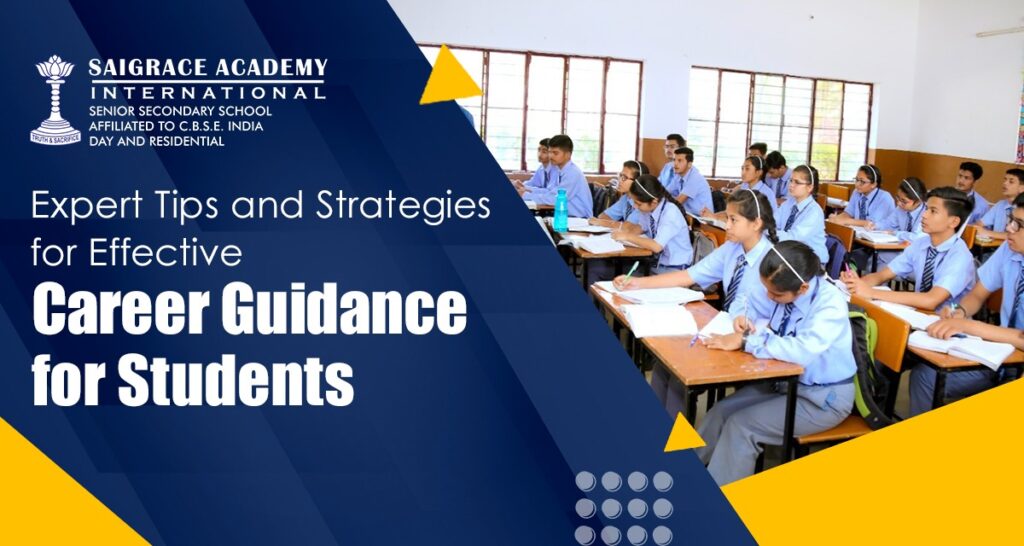
Career guidance is a crucial aspect of a student’s development. That’s because it shapes their future and sets the foundation for their professional lives.
Effective career guidance helps students understand their strengths, interests and the vast array of opportunities available to them.
Owing to this, here are some expert tips and strategies for providing effective career guidance for students.
Early Exposure and Exploration
Introducing career concepts at an early stage helps students understand the variety of professions available.
Elementary and middle school programs can include activities that expose students to different careers and thus make the idea of career planning a gradual and natural process.
Furthermore, organizing career fairs and inviting guest speakers from various fields can provide students with firsthand insights into different professions which in turn can inspire students and help them identify their interests.
Individual Assessments and Counseling
Utilizing assessment tools to evaluate a student’s strengths, interests and personality traits can provide valuable insights. Tools like the Myers-Briggs Type Indicator (MBTI) or the Holland Code (RIASEC) can help students understand their preferences and potential career paths.
Other than this, one-on-one counseling sessions can help in addressing individual needs and concerns whereas personalized guidance can help students set realistic goals and develop a clear action plan for achieving them.
Developing Essential Skills
In addition to academic knowledge, soft skills such as communication, teamwork, problem-solving and time management are crucial for career success. Incorporating soft skills training into the curriculum can better prepare students for the workplace.
Other than working on soft skills, encouraging students to gain technical skills and relevant certifications can give them a competitive edge in the job market. Workshops, online courses and internships can provide practical experience and enhance their resumes.
Exploring Educational Pathways & Providing Financial Guidance
Informing students about various educational pathways including vocational training, community colleges, universities and online education, helps them make informed decisions.
Highlighting the advantages and disadvantages of each option can help students determine what’s the best path for their goals.
Additionally, providing information about scholarships and financial aid options can help alleviate the financial burden of higher education.
Workshops on financial planning and budgeting can also prepare students for managing their finances effectively.
Utilizing Technology and Resources
Leveraging online career platforms and resources can provide students with valuable information about various careers, job market trends and educational requirements. Websites like LinkedIn, Glassdoor and career-specific forums can be excellent resources.
Furthermore, implementing career guidance software in schools can streamline the counseling process as these tools can help students explore career options, plan their education pathways and set career goals.
Building a Professional Network
Connecting students with mentors in their field of interest can provide invaluable guidance and support. Mentors can offer career advice, industry insights and networking opportunities that can help students navigate their career paths.
Leveraging alumni networks can also be beneficial as alumni can share their experiences, offer advice and provide job shadowing or internship opportunities for students.
Getting Some Real-World Experience
Encouraging students to take on internships and part-time jobs related to their field of interest provides practical experience and a better understanding of the industry. These experiences can also improve their resumes and increase their employability.
Apart from this, volunteering and participating in extracurricular activities can help students develop leadership skills, teamwork and a sense of responsibility as well as provide opportunities to explore different interests and career possibilities.
Continuous Support and Follow-Up
Regular follow-up sessions with students can help track their progress and address any challenges they may face.
Continuous support ensures that students remain motivated and on the right track toward their career goals.
Other than this, gathering feedback from students about the career guidance process can help improve the program. Understanding their needs and experiences allows for adjustments which in turn can enhance the effectiveness of career guidance services.
Final Thoughts
Effective career guidance is a multifaceted process that requires a handful of things, however, by implementing the abovementioned tips and strategies, educators and career counselors can help students navigate their career paths with confidence and clarity.
At Saigrace Academy International, we believe that preparing students for the professional world involves not only academic knowledge but also practical experiences, soft skills and a strong support network. That’s why we provide our students with comprehensive and effective career guidance so that they can make informed decisions, set achievable goals and get started on a fulfilling career journey.

